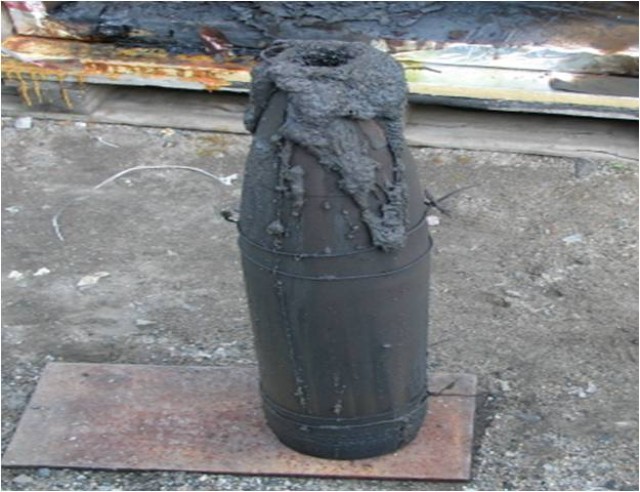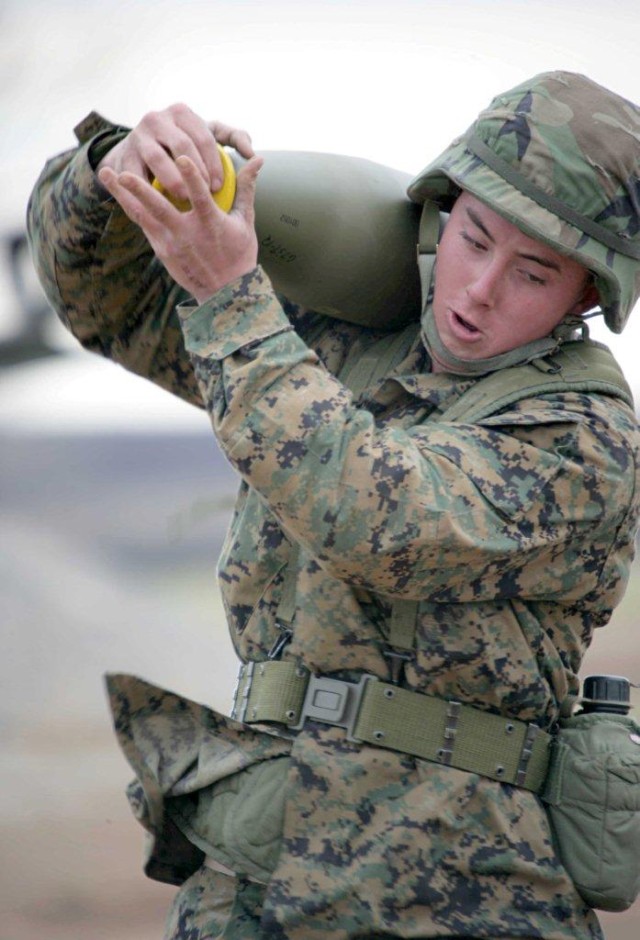PICATINNY ARSENAL, N.J. (Aug. 11, 2010) -- The U.S. Army recently qualified a new explosive that has the same lethality as traditional TNT, but is far less likely to explode if dropped, shot at or hit by a roadside bomb during transport.
The new formula, called IMX-101 (Insensitive Munitions Explosive 101), is scheduled for delivery to deployed Army and Marine Corps units in the form of 1,200 M795 artillery projectiles as early as next year, as TNT supplies are eventually phased out.
Numerous tests by the Picatinny team have proven that IMX-101 is a safer alternative to TNT in the Army and Marine Corps' existing large-caliber projectiles, especially during transportation, storage and loading.
"If you were involved in an incident near a traditional TNT projectile hit with an RPG (rocket propelled grenade) or an improvised explosive device, you wouldn't be standing here today to tell about it," said Charlie Patel, a program-management engineer for Project Manager Combat Ammunition Systems here. "But with IMX-101, all that would happen is the explosive would deflagrate (burn quickly), and the shell would break into a few pieces. You wouldn't have the big detonation that would wipe out the vehicle and driver or a whole storage area and crew."
"Because it's less sensitive, the Army can store more shells in a magazine, and store more in one building at a closer distance to the Soldiers," said Anthony Di Stasio, project officer with the Armament Research, Development and Engineering Center, known as ARDEC here. "It significantly reduces the logistics burden both here in the U.S. and overseas."
The selection of IMX-101 is part of an ongoing program at Picatinny to find low-cost, insensitive munitions to meet requirements set by the Department of Defense. During the selection process, the team tested and evaluated 23 different formulas, submitted by government, foreign and private competitors.
IMX-101, developed by BAE Systems, was chosen as the winning formula because it was the most cost-effective option that exceeded all system tests.
"The system level tests represent real hazards and threats our Soldiers face in combat," Di Stasio said. "If in they are being attacked by RPGs (rocket-propelled grenades), then we fire our new system with RPGs to make sure it can hold up."
While the material cost for IMX-101 is higher than TNT, the price will fall as the Army produces more quantities in coming years, Di Stasio said. However, he explained the real cost savings will come with the improved logistics of the new explosive, which will cost a significant amount less than the Army currently pays to transport and store TNT.
The second-place contender was a formula developed by ARDEC. While this explosive, named IMX-102, also exceeded all system tests, it costs more to produce than BAE's IMX-101.
However, ARDEC's formula still holds value in other munitions applications, as Picatinny engineers continue to find new ways to incorporate this technology into other systems to ultimately save warfighter lives.




Social Sharing